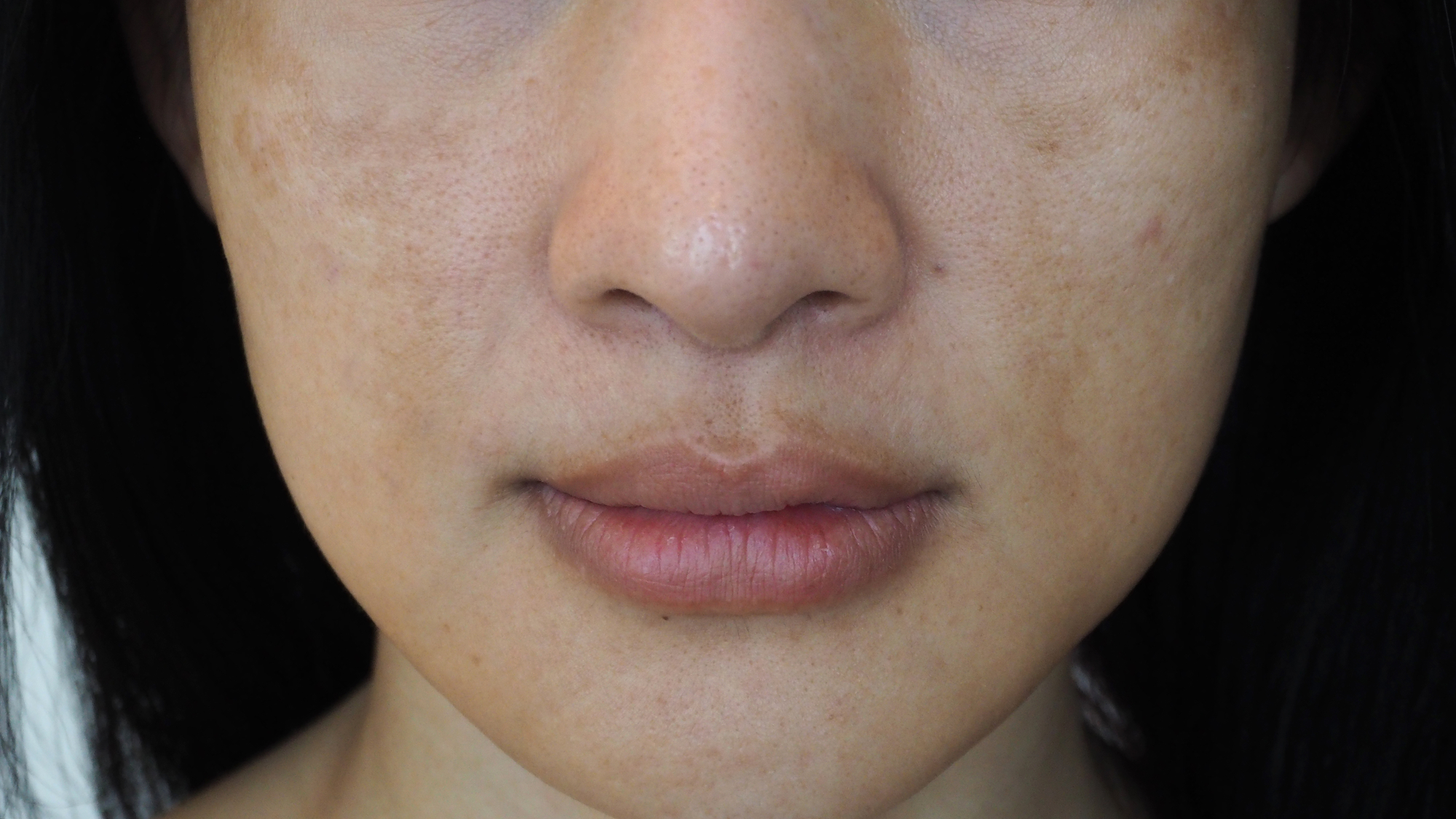
Pregnancy brings on many physical changes, and your skin is no exception. Melasma is a chronic hyperpigmentation disorder caused by the overproduction of melanin in response to hormonal changes. Onset during the child-bearing years, melasma typically starts during the mid 20’s and can continue to affect individuals into their 60’s and beyond.
While traditional laser treatments are known to make melasma worse, PicoSure laser treatments can help. Read on to learn more about this groundbreaking technology and why it’s ideal for treating stubborn melasma.
What Is Pregnancy Melasma?
“Pregnancy mask,” formally known as melasma, is a condition that 50-75% of women experience during or after pregnancy. Pregnancy melasma is a specific form of skin hyperpigmentation that is most commonly associated with pregnancy. Caused by the increase in estrogen, it is often diagnosed through a visual examination of your skin. To determine if you are suffering from melasma, look for dark blotches on various areas of the face, including the forehead, cheeks, and lip areas.
Factors That Increase Your Chances of Developing Pregnancy Mask
Melasma is thought to be triggered by a combination of UV-ray exposure and hormones. Due to higher levels of darker pigment, it is more common in women of color and individuals with brown-based complexions.
Other factors that increase your risks of developing melasma during or after pregnancy include:
- Having Asian skin type (especially Fitzpatrick Skin Type III and IV)
- Being of the child-bearing age
- Physically active lifestyle
- An increase in sun exposure
- Family history of melasma
- Increased female hormones from oral contraceptives or hormone replacement therapy
- Thyroid disease
- Having low testosterone
Melasma Treatment With PicoSure Laser
PicoSure laser treatments deliver extremely short pressure waves into the skin that shatter pigmentation into small particles that are then absorbed and discarded by your immune system. The PicoSure laser is a unique treatment option for melasma because it does not produce heat. Rather than “burning” the pigmentation out of the skin, any discoloration is non-invasively broken down. With no heat, there is no risk of inflammation in the skin and no risk of triggering an increase in melasma.
PicoSure laser’s unique picosecond pulse is cell-signaling. This produces significant rejuvenation to the treatment area, resulting in tighter, brighter skin. With no downtime required after treatment, PicoSure is an excellent treatment option for all skin types.
Benefits of PicoSure Laser For Melasma
PicoSure offers unique benefits that traditional laser treatments don’t, including:
- PicoSure technology breaks up melasma better than laser energy
- PicoSure provides faster, more predictable results than topical creams, chemical peels, steroids or oral treatments
- PicoSure laser treatments are quick, comfortable and safe for all skin types
- Treatments are non-invasive and non-surgical
- There is no downtime required after treatments
Faster, More Predictable Results Than Topical Creams
In many cases, if you have melasma, your health care provider may prescribe topical ointments containing steroids to lighten dark pigmentation areas. This treatment can become time-consuming, inconvenient, and take months before you see results. Additionally, chemical peels and microdermabrasion treatments may help melasma, but they strip away your skin’s outer layers. Downtime, while your skin recovers, can last from a week to several weeks at a time.
PicoSure laser treatments are an effective alternative that allows you to return to your daily activities without any necessary downtime.
Quick, Comfortable, and Safe Treatments
Most PicoSure laser treatments take 30 minutes or less per session. Since the laser energy penetrates below the surface of your skin to break up darker pigmentation, it’s a reasonably comfortable treatment process. Most compare the sensation to the snapping of a rubber band and describe the treatment as well-tolerated.
What New Mom’s Can Expect After Treatment
After PicoSure laser treatments, the pigmentation may appear initially darker. Over the next two weeks, your melasma will begin to fade. On average, we recommend four treatments 4-6 weeks apart. Maintenance appointments may be necessary every six months.
To learn more about PicoSure laser treatments and how you can improve your pregnancy melasma, contact Laser Aesthetic Center to schedule a customized consultation appointment.
